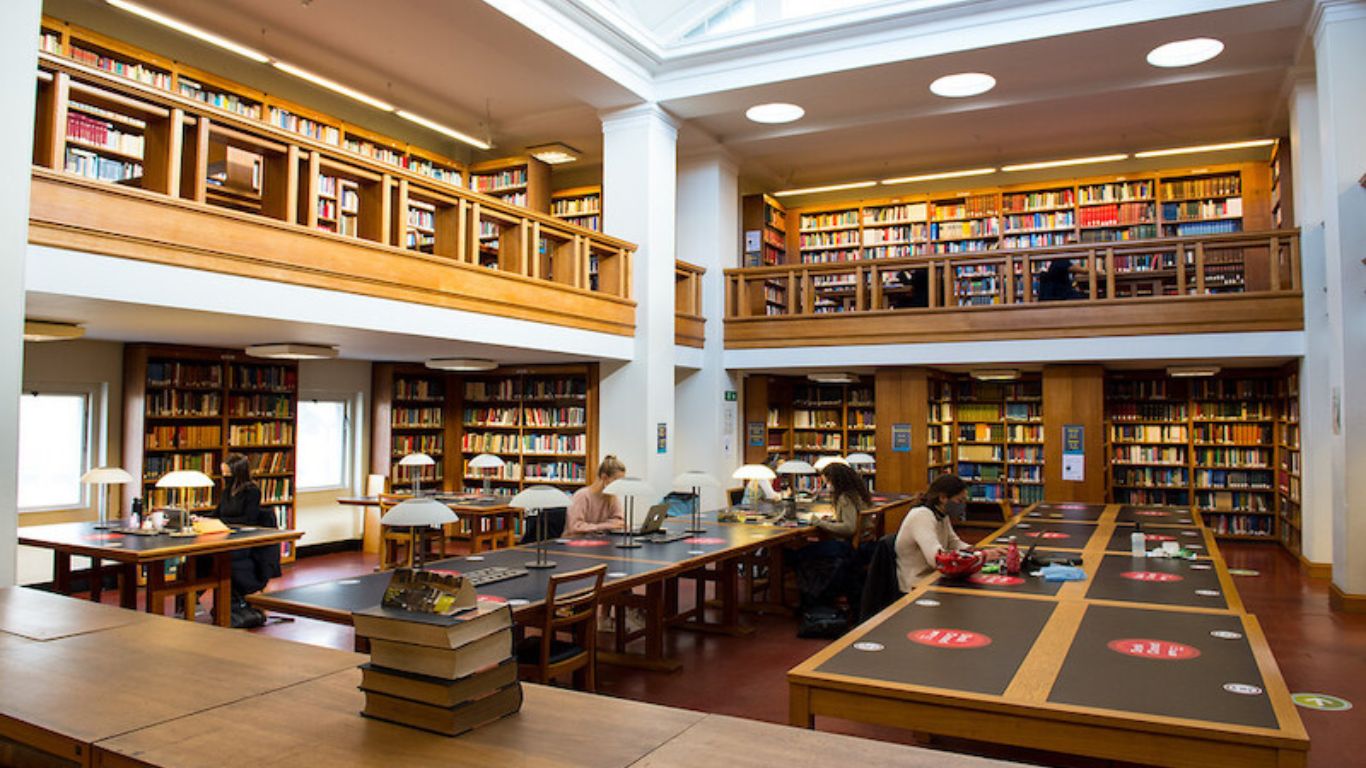In the center of London, University College London (UCL) is a shining example of academic brilliance. One of the most prominent institutions in the world, UCL was founded in 1826 and is well-known for its cutting-edge research, diverse student body, and historic significance.
This in-depth study will examine UCL’s history, academic offerings, research capabilities, campus culture, and global impact to determine what makes it a premier choice for students, faculty, and researchers.
A Synopsis of University College London’s Past
The first institution in England to accept students without regard to their religious beliefs was the institution of University College London, which opened its doors in 1826. This groundbreaking action was a reaction to Oxford and Cambridge’s discriminatory policies, which at the time limited admission to members of the Anglican Church.

UCL’s dedication to academic independence and inclusion set the stage for its future success. UCL has grown over the years from a tiny university to a major player in higher education worldwide by consistently pushing the frontiers of innovation and knowledge.
Programs and Academic Excellence
Numerous undergraduate and graduate programs in a range of subjects are available at UCL. Students can select from more than 800 degree programs in subjects like business, engineering, social sciences, humanities, and sciences.
UCL is especially well-known for its emphasis on research and dedication to providing top-notch instruction.
Humanities & Social Sciences:
The research output and academic rigor of UCL’s Faculty of Arts and Humanities are highly acclaimed. Drawing on the wealth of historical context and cultural materials available at the university, programs in English literature, philosophy, and history are particularly well-regarded.
With its multidisciplinary programs that address intricate global concerns, the Faculty of Social and Historical Sciences equips students for influential careers in international relations, media, and policy.
Sciences and Engineering:
At the forefront of innovation and cutting-edge research are the faculty of mathematical and physical sciences at UCL and the faculty of engineering sciences. The engineering programs offered by the university are especially notable since they emphasize the practical application of knowledge and have strong ties to industry. Moreover, top-notch research facilities, including the Institute of Structural and Molecular Biology and the London Centre for Nanotechnology, are located at UCL.
Overview of University College London
Health & Medicine:
The UCL Medical School is renowned for emphasizing clinical excellence and research, making it one of the best medical institutions in the world. Numerous undergraduate and graduate programs in healthcare, biomedical sciences, and medicine are available.
Students benefit greatly from the university’s tight relationships with London’s hospitals and research centers, which offer significant real-world experience.
UCL Research: Challenging Conventions
The primary goal of UCL is research. The university is dedicated to tackling some of the most important issues facing the globe today, such as public health and climate change. The research output of UCL is regularly rated among the best in the world and is essential to the advancement of knowledge in many different fields.
Novel Initiatives:
UCL is engaged in several groundbreaking research initiatives. For instance, the university’s Institute of Neurology is at the forefront of studies into neurological conditions to develop novel therapies and enhance patient care.
Leading the way in sustainable urban development, the Bartlett School of Architecture develops creative ways to improve both the livability and environmental friendliness of cities.
Collaborative Research:
UCL frequently collaborates with other academic institutions and business partners on its research projects. This multidisciplinary approach guarantees that research discoveries have real-world applicability and encourages innovation.
The university’s partnerships with significant international organizations like NASA and the World Health Organization serve as evidence of its influence and reach abroad.
Campus Life and Infrastructure
The bustling Bloomsbury neighborhood of London is home to UCL’s campus, which provides students with a distinctive fusion of intellectual and cultural experiences. Due to the university’s strategic position, it is simple to visit London’s many galleries, museums, theaters, and historical sites.
Campus amenities:
The state-of-the-art amenities on the UCL campus are intended to improve the educational experience for students. The institution is home to state-of-the-art labs, libraries, and study areas. Academic activity centers around the Main Library, which has a vast collection of books and digital resources.
Student Housing:
Private homes and residence halls are just two of the housing alternatives that UCL provides for its students. Students who live close to the university can take advantage of London’s cultural and social offerings while completely immersing themselves in campus life.
Student Organizations and Activities:
With more than 300 student organizations and clubs, UCL boasts a thriving student body. These include social clubs for culture and leisure as well as professional and academic societies. Students have the chance to learn new skills, meet people, and give back to the university community by participating in these events.
Worldwide Effect and Alumni Association
The impact of UCL goes much beyond its campus limits. The institution addresses global issues and advances societal advancement through its research, instruction, and international collaborations.
International Collaborations:
UCL works with top research institutes and universities all around the world. These relationships help the university expand its global reach by facilitating knowledge sharing, teaming up on research projects, and academic teamwork.

Alumni Success:
Nobel laureates, powerful legislators, well-known scientists, and prosperous businesspeople are among the esteemed alumni network of UCL. Marie Stopes, Alexander Graham Bell, and Mahatma Gandhi are notable alumni.
The accomplishments of UCL alumni in a variety of professions are a testament to the university’s dedication to quality and its role in developing the next generation of leaders.
The Application and Admissions Process
The application procedure for UCL is demanding, as the university receives applications from gifted students all over the world. Prospective students should make sure they meet the academic and language competency criteria by carefully reviewing the entry requirements for the program of their choice.
Applications for Undergraduate Studies:
UCL accepts applications via the University College London Service, or UCAS. The required materials for applicants are a personal statement, reference letters, and academic transcripts. Some programs might also call for further questionnaires or interviews.
Postgraduate Applications:
To be considered for postgraduate programs at UCL, candidates must submit an online application together with their academic records, a statement of purpose, and recommendation letters. A portfolio or interview may also be necessary for some programs.
In conclusion
A distinguished establishment with a long history, a wide variety of academic offerings, and a dedication to innovation and research: University College London. Its prominent position in London gives students easy access to a plethora of professional and cultural possibilities, and its influence throughout the world highlights its status as a preeminent hub for education and research.
UCL is a doorway to academic and professional success, regardless of whether you are a researcher, a potential student, or someone just interested in learning more about one of the best universities in the world. It is an exceptional option for anyone looking to have a significant impact on the world because of its commitment to diversity, quality, and global participation.



